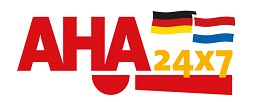november, 2024
Event Details
North Western Europe has traditionally been at the forefront of innovation, industrialisation and making European society more sustainable. That Europe is as strong as its weakest link is also
more
Event Details
North Western Europe has traditionally been at the forefront of innovation, industrialisation and making European society more sustainable. That Europe is as strong as its weakest link is also a given. Europe requires strengthening good cooperation between member states with cooperation and support from national, regional administrators and stakeholders, where Europe’s internal borders are not perceived as obstacles but as opportunities. Current European and national elections show that although European citizens aspire to a sustainable and liveable society, the preconditions for this are certainly not yet sufficiently in place.
Cross-border objectives on sustainability and industry, economy, infrastructure and mobility also means active commitment to cross-border cooperation between member states. In the first half of this year, the Belgian Presidency of the European Council included strengthening Europe’s competitiveness as one of its priorities. Supported by the outcome of the elections, the movement from a Green Deal to Industrial Deal has begun. In order to achieve a good investment climate with consistent laws and regulations and fair tariffs in a level playing field in the areas of sustainability, economic development and liveability, cross-border cooperation between different layers of government was mentioned as a prerequisite. Well-functioning European sustainable transport corridors are the essential required network in this respect. Within corridors are sub-regions that occupy key positions and act across borders. From the Benelux, the Dutch-Flemish cooperation initiating a linking mechanism, ITEM presents in this 10e edition of the annual conference the usefulness of the European border effects test and cohesion policy for border regions, the importance of European direction on cross-border cooperation and the effect of European industrial policy on border regions.
The experiences of 10 years of ITEM underline that cross-border cooperation on European societal challenges is crucial. Experience also shows that a structural, synergetic and long-term approach is necessary for effective results. In short, a broad integral vision of the future is needed with a place for short-term results as well. This requires a joint approach in which the various layers of government, knowledge institutions as well as stakeholders from the business community each have to contribute from their own responsibility.
The following ‘ ITEM Border impact cases will be covered in the programme:
- Opportunity analysis: European border impact assessment and cohesion policy for border regions
- Border Impact File: Facilitating Cross-border Solutions – proposed EU regulation
- Border Impact File: The impact of recent EU industrial policy legislation on border regions
Governor Carina van Cauter and the province of East Flanders are hosting the ITEM Annual Conference 2024 from the province of East Flanders. It will take place at the Provincial House in Ghent (Leopoldskazerne). The ITEM Annual Conference is co-sponsored by the Chancellery and Foreign Affairs Department (DKBUZA) of the Flemish government and the province of East Flanders.
We hope to see you in person in Ghent on 22 November.
Register now via this link. You will receive the invitation with the full programme after the summer break.
More Infos: ITEM.
Time
(Friday) 09:00 - 15:00
Location
Provinciehuis Oost-Vlaanderen
Organizer
ITEM
